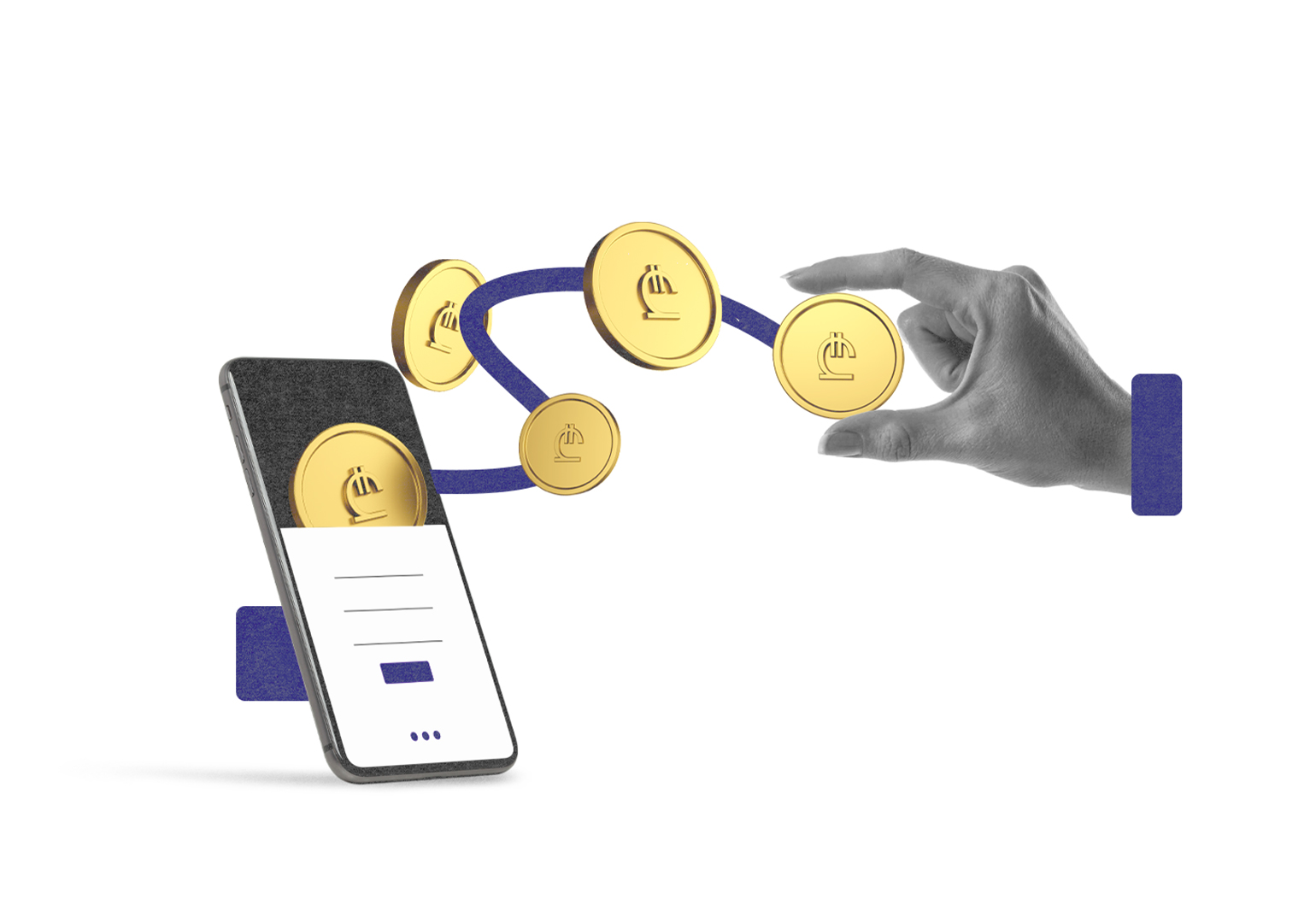Two years ago, the National Bank of Georgia (NBG) announced its intention to issue a digital version of the national currency. According to the monetary authority, the digitization of the lari is linked to improving the tax system and increasing financial inclusion. Apparently, digitizing the national currency is necessary to better adapt to the digital economy and enhance the effectiveness of monetary policy.
However, before we discuss the effectiveness of monetary policy or the issue of adaptation to the economy, we must explain the difference between the NBG’s digital currency and cryptocurrencies. The two have certain similarities, which may be confusing for some.
The main similarity is the form – both are digital but diametrically different. The first key difference is evident from the name itself: the digital lari is subject to centralized distribution by the state (in this case, the NBG), while private market participants provide cryptocurrencies such as Bitcoin. Moreover, the latter is free to use without a permit, unlike the digital currency issued by the bank. Since no authorization from a bank, representative authority, specific company, or individual is required to use Bitcoin, it cannot be frozen or confiscated by any group or individual. Naturally, there are further differences between the two, but another essential and noteworthy contrast is that, unlike Bitcoin, the digital lari will be in unlimited supply under the discretionary monetary policy of the NBG.
Now, we can talk about the effectiveness of the policy. From the NBG’s perspective, this implies obtaining more control over the vital means of exchange and savings. Monetary power is as extensive as its influence over the people who must use the central bank’s currency as a means of exchange. In Georgia, the only lawful form of payment is the lari, and the only authorized issuer is the NBG. Thus, the National Bank is an unelected fourth branch of government with a monopoly and large-scale influence, the nature of its power being arbitrary and less limited. Talking about the effectiveness of such a body’s policy implies an expansion of control over the means of exchange – that is, the use of the lari by more people in more exchanges and the restriction of monetary freedom.
Monetary freedom was first curtailed on a large scale when real money (gold) was forcibly replaced with paper money. In free conditions, gold was used as a medium of exchange and to accumulate wealth. The gold standard represented the rule for determining the quantity of money and the change in its supply in the country, as the portion of newly minted gold in the accumulated reserves was small, and free conversion into another unit was guaranteed. Thus, the gold standard ensured price stability.
The classical gold standard dates back to World War I, when it was dismantled as warring parties resorted to inflationary financing. Two decades later, the nationalization of gold began, and the gold standard was abolished entirely in the early 1970s. This was a visible erosion of monetary freedom. Introducing a digital currency with a central bank monopoly will mean destroying this freedom and large-scale interference in an individual’s right to privacy.
Unlike paper money, a digital currency leaves no possibility for anonymity. Financial activity is a crucial part of people’s private lives, so the standard of restriction and interference in it requires a certain measure of security or protection of the rights of others. Public administrations (the NBG, the Ministries of Finance and Justice) are widely equipped with such powers of restriction and intervention, mainly to prevent money laundering and the financing of terrorism. Their powers have been further expanded by several legislative changes several years ago. For example, the question: “Are you politically active?” is now put by bank representatives to customers when they receive banking services.
While paper money currently provides the possibility of privacy, the digital lari will make the financial activities of individuals fully visible to the aforementioned bodies. This will be a total invasion of privacy.
Privacy is one of the driving factors for people exchanging money without an intermediary, in this case, the banking system. Thus, involvement in the financial system cannot be increased by something that is itself an obstacle to that involvement unless a coercive mechanism is used. Moreover, there is currently no financial inclusion problem because access and broad choice are created and delivered in a competitive environment by commercial banks rather than a centralized public administration. Private actors in the financial system are more than capable of keeping up with the pace of technological innovation and the development of digital capabilities.
Naturally, for the technologies to get a foothold in the financial sector, it requires the presence of a digital means of payment, and it is precisely such means that are needed for the digital economy. However, there is no need to digitize the lari by the National Bank because digital forms of the national currency already exist and are used in most exchanges. People actively use credit and debit cards, electronic wallets and payment apps. For example, the number of transactions made with payment cards in Georgia has increased 13 times over the last ten years. There are currently 88,300 POS terminals and around eight million active payment cards issued by commercial banks. Consequently, the number of electronic payments is steadily increasing each year while the share of cash withdrawals from ATMs is sharply decreasing. This indicates that along with the growth of the digital economy, there is an evident increase in the number of digital payment means provided by commercial banks.
The use of such commercial banking services by people requires a deposit account, which is the responsibility of the bank. Thus, commercial banks play the critical role of financial mediator in an exchange between two parties. This will be different in the case of the NBG’s digital currency, which is the responsibility of the central bank itself rather than commercial banks. It establishes a direct link between the NBG and the owner of the digital lari, significantly diluting or eradicating the intermediary function of financial institutions.
Finally, replacing cash with digital currencies issued by central banks will encourage more people to turn to decentralized electronic exchange means (cryptocurrencies) to maintain privacy. Monopolist central banks and political authorities will likely ban these currencies. Whether or not such a ban would be enforceable is another question.

















